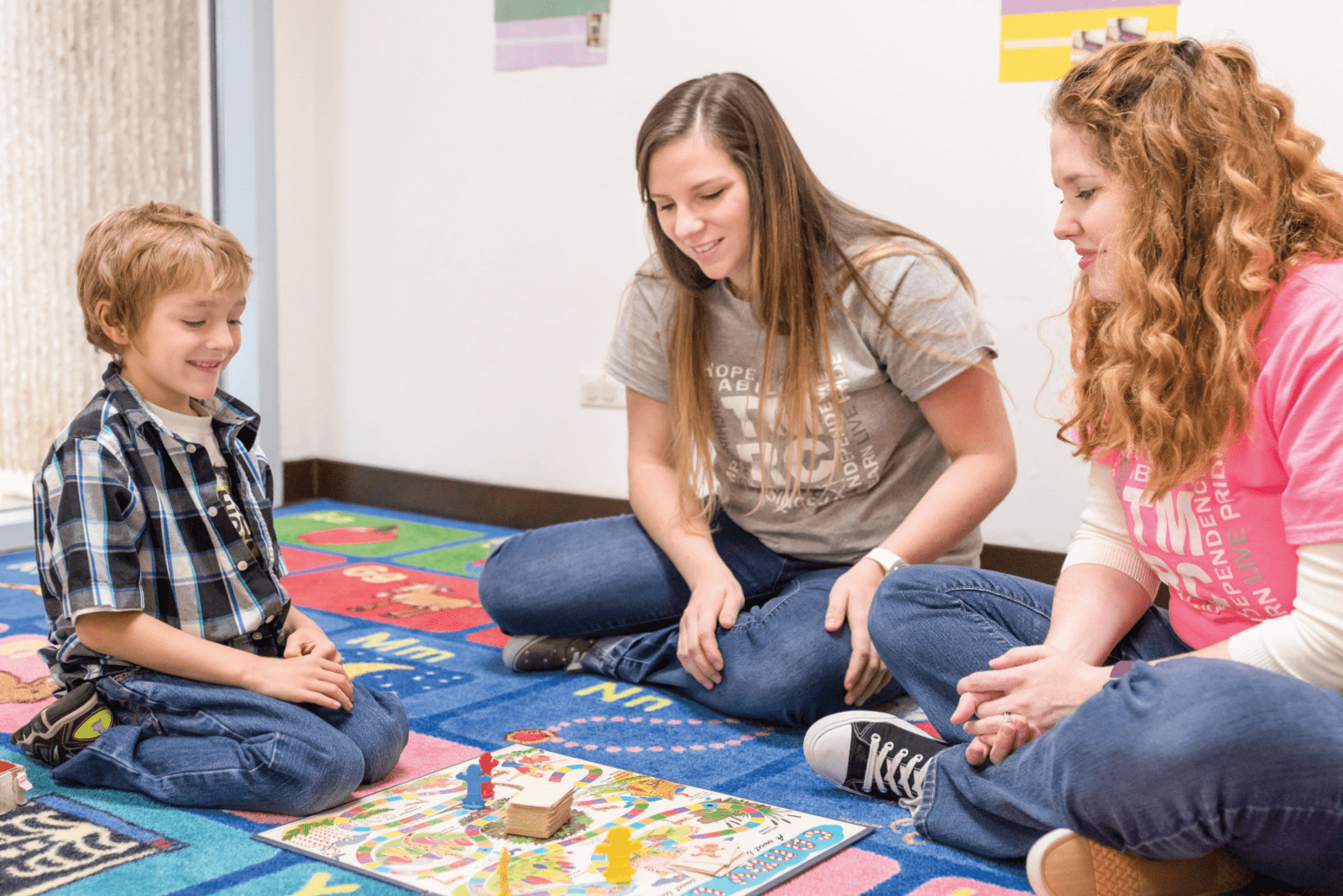Temple Memorial Rehabilitation Center & The Autism Program through Texas HHSC.

By Erin Rogers
Autism spectrum disorder (ASD) is the fastest growing serious, developmental disability, affecting an estimated 1 out of 68 children in the United States.
The healthcare professionals at the Temple Memorial Rehabilitation Center are providing life-changing interventions to those diagnosed with Autism Spectrum Disorder and other special needs in the Texarkana area. For over 60 years, TMRC has provided specialized therapies such as occupational, speech and physical therapy to families in need in the Texarkana area. Last year, the center expanded their services to included Applied Behavioral Analysis services. Their resources and support from their individualized programs help children and parents with a variety of needs.

The ABA program provides treatment that targets deficit areas by teaching new skills and finding appropriate alternatives for challenging behavior, communication and social skills. TMRC focuses on utilizing behavior analysis interventions centered around the theory of positive reinforcement. Parents are a vital part of the intervention process and are taught to integrate the strategies into their homes and community.
Services for the ABA program began in 2015 when Temple Memorial was approved for a grant through Texas DARS, Department of Assistive Rehabilitation Services, now Health and Human Services Commission (https://hhs.texas.gov/services/disability/autism). “The ABA program started out with 6 patients enrolled, then grew to 24 within the year,” said Sandy Varner, Executive Director.
Dr. Amy Heath, BCBA-D, overlooks the entire operation and treatment works in conjunction with the assistance and reinforcement from parents, caregivers, and schools. She said, “It’s exciting to be a part of a program that provides much needed services at a reasonable cost to an underserved area.”
The Texas DARS Autism Program is particularly useful because out of pocket costs can amount to $200 per visit, and not many resources exist in this area for those diagnosed. Costs are covered for Texas residents for up to 30 hours a month, up to 6 months per year. Even after treatment is complete, patients can register again each year for up to 4 years. Children must have a diagnosis from a medical professional prior to enrollment to receive treatment from the rehabilitation center.
“Autism spectrum disorder (ASD) is the fastest growing serious, developmental disability, affecting an estimated 1 out of 68 children in the United States. With this number growing at a significant rate, there continues to be an unmet need for services (https://hhs.texas.gov/services/disability/autism).” Autism Spectrum Disorder (ASD) is a developmental disorder that is characterized by challenges in social interaction, communication, and repetitive, restrictive interests. (Behavior Analysis Certification Board, 2012) “There are some misconceptions about ASD,” says Katrina Brown B.S., Autism Tech. She continues, “Many believe the appropriate way to handle inappropriate behavior or meltdowns is to physically discipline the child. However, the child with autism cannot control that behavior. There are interventions that can be used to reduce these meltdowns.” She continues, “One important factor is to understand the trigger and for families to be patient.”
People should also be aware that parents face judgments over their children’s actions, and it’s important for the public to empathize and to understand that the behavior the child exhibits is not a direct reflection of the parents’ competency. For parents who need additional services, “Autism Speaks is a helpful resource. They also have a help line for parents to call if they have any questions,” said Jillian Kinney, B.S., Autism Tech.
Children with ASD respond well to visual aids; the rehabilitation center provides charts for schedules, behavior, and gross motor tools to help supplement a well-structured and balanced environment. Exavier Haggard, 6 years old, follows the chart from activity to activity: blocks and games, circle time, and to obtain some tangible form of positive reinforcement.
The first activity is a game of Candy Land and the technicians are observing how well their patient, Exavier, can exhibit the proper responses for the activity. He demonstrates excellent etiquette as he informs everyone of the rules of the game and then patiently waits as each person takes their turn. Intermittently, he exchanges words of encouragement and as his anticipation grows, a sense of competition motivates his inclination to play.
Later, he changes to table time and is given a card with a photo of the word “me” constructed by wooden blocks. Exavier’s task was to replicate the image with his own respective blocks. Although Exavier’s attempts amounted to some isolated heated emotions, with the help of Jillian and Katrina, he managed to work through what could have been an ordeal, but instead was rationalized as a minor inconvenience. His completion of tasks earns him time to play games on a tablet, and gratification in the form of a smile overtakes his face.
The Temple Memorial Rehabilitation Center is providing children with the confidence to overcome daily obstacles. Exavier, and many like him, are now more capable of responding appropriately to their triggers and these programs are giving them the communication skills necessary to cope with ordinary frustrations. The technicians are compassionate and knowledgeable, and along with Dr. Amy Heath, BCBA-D, they make the ABA program a vital resource for the Texarkana region so that those with ASD can live more independently.









